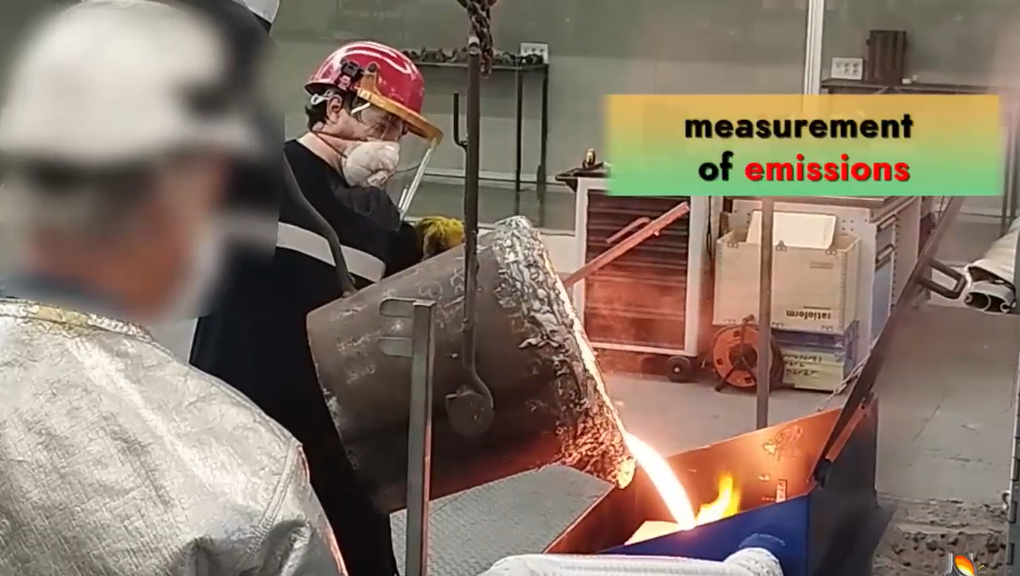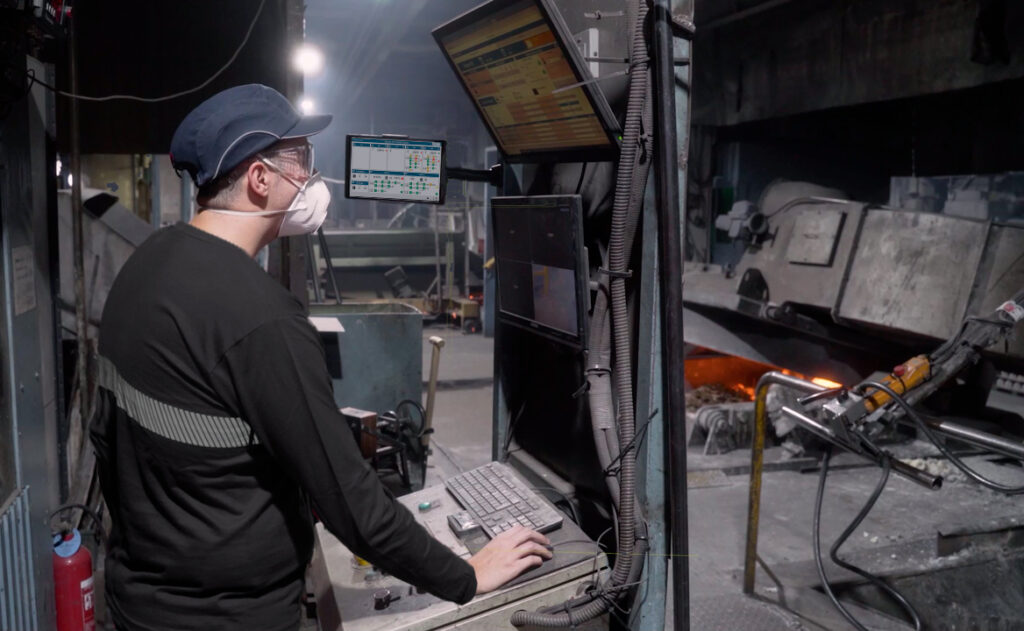The LIFE Green Casting project aims to demonstrate the technical and environmental feasibility of using inorganic binders, instead of traditional organic ones, in iron foundries. To this end, it will collaborate with leading European foundries to subsequently develop and provide resources and good practices aimed at promoting the implementation of this mold manufacturing method in the iron foundry industry.
The need to evolve the casting process in terms of sustainability points out the molding process as one of the process phases to work on. In this area, in addition to the management of the sand, the binders used to harden molds and cores have become an important field of work.
As explained by Erika Garitaonandia, sustainability and environment expert AZTERLAN researcher, “in the manufacturing process of large castings, the binders currently used are mostly organic resins. These contain aromatic hydrocarbons derived from petroleum as solvents that directly affect the emissions of Volatile Organic Compounds (VOCs) and have a negative impact on the air quality in the work environment of the foundry”. In addition, organic binders “make it difficult to recover molding sands that are impregnated with harmful substances, such as concentrations of dissolved organic carbon, phenols, among others, which are difficult to extract and encourage these spent sand to be disposed in landfills.”
On the contrary, inorganic binders based on sodium silicate use water as a solvent, drastically reducing the emissions of harmful substances into the air. Currently, the demand for this technology is booming in the aluminum foundry, “however, its assimilation in the manufacture of molds requires certain adjustments to be introduced in the process. The lack of knowledge about this type of binder and their implementation in the production process still generates significant uncertainty and the reluctance of many foundries”. With this focus, “our framework, within the LIFE Green Casting project, consists of demonstrating the industrial viability of this agglomeration system and generating practical resources for foundries to advance in their incorporation”.
For this purpose, first of all, they will seek the implementation on an industrial scale of the inorganic binder system in the production process of leading foundries in Europe. “For the foundries participating in LIFE Green Casting, it will mean the assimilation of significant changes in their process, beginning with the selection of the appropriate inorganic binder system, adaptations in their processes and investments in new equipment.”
Among the expected results the reserch team highlights an “80-95% reduction in total hazardous atmospheric emissions (VOC, SO2, NOx, Particles…) in the production lines using inorganic binders and creating a healthier work-environment for workers by improving the quality of the indoor air in foundries (CO, BTEX, particles, formaldehyde, phenols…) in a 70%”.
At the same time, the work team will demonstrate different methods of recovery and reuse of molding sand. “Reducing harmful substances in spent sand by 80-90% and decreasing the amount of waste sand sent to landfill will be very important goals that the project is also focusing on.”
Finally, the LIFE Green Casting consortium will generate a practical guide (BREF – Reference Document on Best Available Techniques in the Ironworks and Foundries Industry) based on the experiences and know-how obtained, as well as step-by-step implementation plans. for its large-scale implementation. “Demonstrating the industrial viability of the developed solution, as well as the resources for its practical implementation, is key to improving the trust and commitment of European foundries to inorganic binders.”
Call to Europe’s leading sustainability foundries: Meeting at GIFA 2023
Currently, Green Casting is looking for 15 foundries interested in participating in the transfer and replicability phase, in order to carry out some pretests with inorganic systems. The current project team and interested foundries will meet at GIFA 2023 in AZTERLAN Metallurgy Research Centre booth (Hall 16 Stand G23).
The GREEN CASTING LIFE project is co-financed by the LIFE program of the European Union under the license agreement LIFE21-ENV-FI-101074439. The consortium consists of: Meehanite Technology Oy (project leader), Voestalpine Railway Systems JEZ, Odlewnie Polskie, S.A. Ltd S.L; Metalúrgica Madrileña S.A.; Valuehaanika AS; Peiron Oy; Fonderie di Assisi Engineering srl; AZTERLAN Metallurgy Research Centre; PEAK Deutschland GmbH; SAND TEAM, spol s.r.o.; AGH University of Science and Technology, A-Insinöörit Teollisuus- ja talotekniikka, Centre Techniques des Industries Mecaniques, AFV; Foundryteam Oy and Universita degli studi di Perugia.



